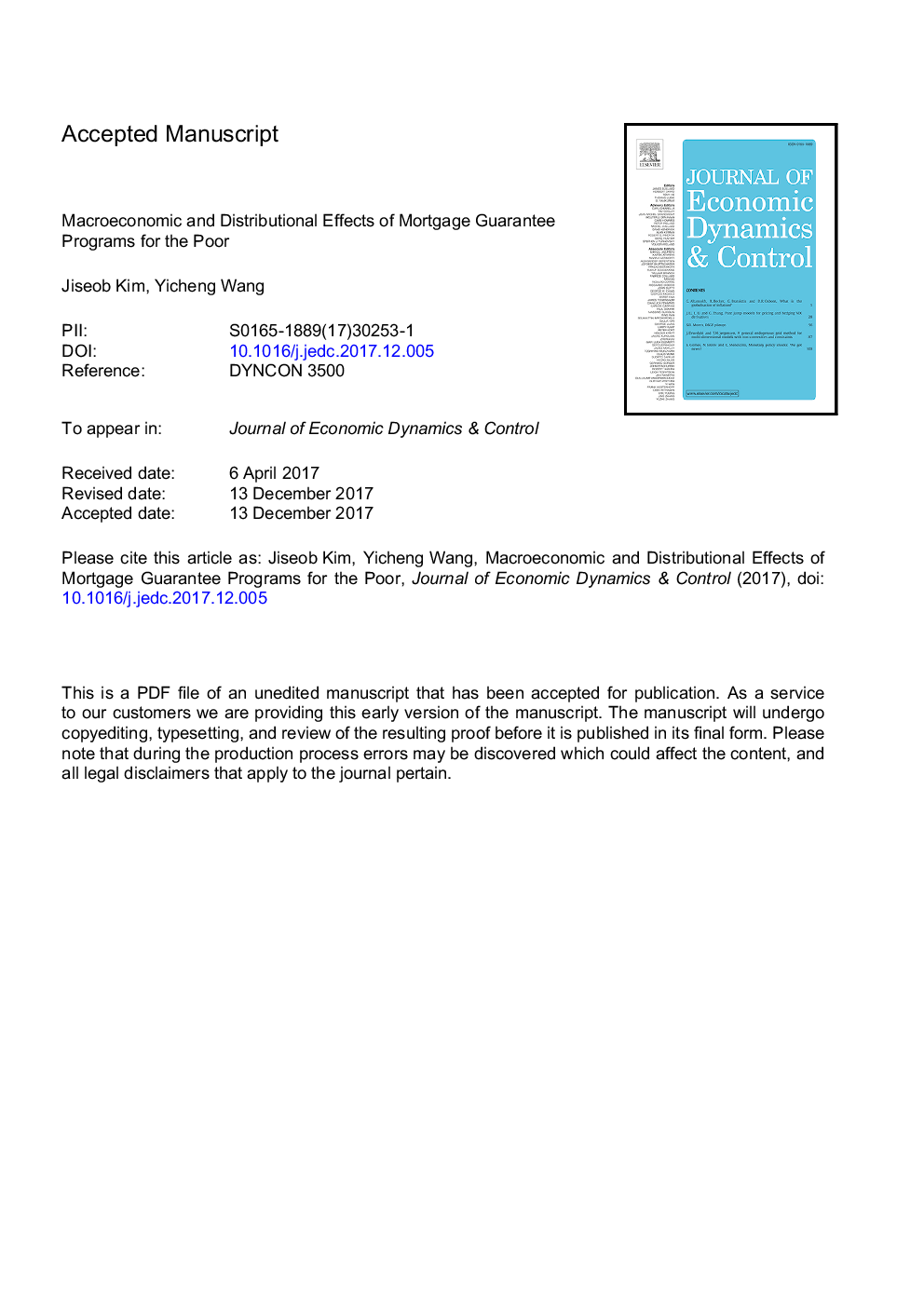| Article ID | Journal | Published Year | Pages | File Type |
|---|---|---|---|---|
| 7358870 | Journal of Economic Dynamics and Control | 2018 | 64 Pages |
Abstract
Government-driven mortgage guarantee programs (for example, loans insured through the Federal Housing Administration, the Department of Veterans Affairs, and the Rural Housing Service) aim to help financially disadvantaged households buy and own their houses. This study analyzes the macroeconomic and distributional effects of these government programs. We propose a quantitative model where households endogenously choose their mortgage types either with or without government guarantees. Households that take out mortgages with government guarantees pay an up-front insurance premium, while those that choose mortgages without guarantees face borrowing limits. Our results show that a hypothetical decline in government subsidies for mortgage guarantee programs can improve aggregate household welfare, mainly due to endogenous changes in mortgage interest rates and tax burdens, rather than in housing prices. The welfare implications are different across households, depending on their financial status.
Related Topics
Physical Sciences and Engineering
Mathematics
Control and Optimization
Authors
Jiseob Kim, Yicheng Wang,
